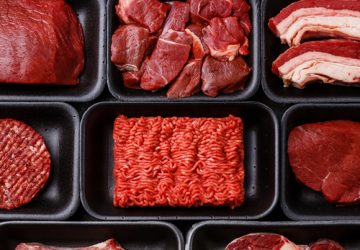Kelly Brownell, grandfather of the Twinkie Tax and author of the recent book Food Fight, regularly attacks restaurants and food suppliers for providing the food that Americans want: “The classic dodge of the food industry now is to blame the obesity problem on physical activity or lack of personal responsibility,” he asserts. Brownell has said he wants to “get away from these arguments about personal responsibility.” Yet when it comes to his own weight, the AP reports:
He sports a good-size paunch thanks, he says, to a book project that has kept him relatively sedentary and snack-prone for the last year or so. In photographs taken a few years back, Kelly Brownell looks much trimmer.
[Click here to watch a discussion of the apparent disconnect between Brownell’s rhetoric and his waistline]
In a truth-in-advertising scam, a “trimmer” snapshot of Brownell appears on his the dust jacket of Food Fight.

Brownell demonstrates the same disregard for parental responsibility that he exhibits for personal responsibility. In Food Fight, he writes that relying on parents is a “failed experiment” and implies parents can’t be trusted to care for their own children any more than if they were trapped animals. He testified to Congress in 2002: “If children have healthy foods available, they’ll eat healthy foods. If they have unhealthy foods available, they’ll eat those … Animals will do the same thing when put in a cage.” Big Brother Brownell would rather trust government restrictions to manage what children eat.
Brownell also supports obesity lawsuits. In a statement announcing the Public Health Advocacy Institute’s 2004 “Legal Approaches to the Obesity Epidemic” conference (the 2003 event was “intended to encourage and support litigation against the food industry”), he endorsed lawsuits as another way to control everyone else’s behavior. And, trying once more to remove food from the realm of personal responsibility, he moderated a panel at the 2004 conference titled: “Are Some Foods Addictive?”
“Zoning laws,” Brownell writes in Food Fight, should be used to “prohibit the operation of businesses selling food within a certain distance of schools.” Brownell also recommended in the newsletter of the Puritanical Center for Science in the Public Interest that activists “develop a militant attitude about the toxic food environment, like we have about tobacco.” (Will Brownell develop such a militant attitude about his own “toxic” environment at home that caused his own issue?) And what about consumers’ freedom to eat what they please? Nonsense, says Brownell. Even smoking “became so serious that society overlooked the intrusion on individual rights for the greater social good.”
Of course, Brownell uses Food Fight to heavily promote (what else?) taxes on foods he doesn’t like. So he wants to “hit junk-food junkies where it hurts: in their wallets.” Consumer taxes, he argues, “can generate considerable revenue and appear to drive down sales of these foods … The aim of the taxes to decrease consumption of unhealthy foods must be made explicit.”
Attacks on “unhealthy” snacks may be trademark Brownell, but even he admits: “No good foods, no bad foods may be true for an individual.” That’s the position of nutrition professionals, but Brownell argues “from a public health point of view” that “no good foods, no bad foods is a highly unproductive philosophy.” Why? “Because it makes all food equal.” That makes it harder for Brownell’s band of food cops to push their hefty taxes on our tasty snacks.
Brownell’s book includes a few remarkable admissions. Speaking of food marketing, he concedes: “There is only circumstantial evidence that the ads cause poor eating.” But lack of good science doesn’t stop him from complaining about advertising for applesauce and 100 percent juice drinks.
Brownell even acknowledges that being overweight isn’t necessarily a health risk:
Groundbreaking work on fitness and weight has been done by [epidemiologist Steven] Blair and colleagues at the Cooper Institute. They have shown that the advantages of being fit are striking and that people can be fit even if they are fat … and thus have lowered risk of disease. A remarkable finding is that heavy people who are fit have lower risk than thin people who are unfit.




